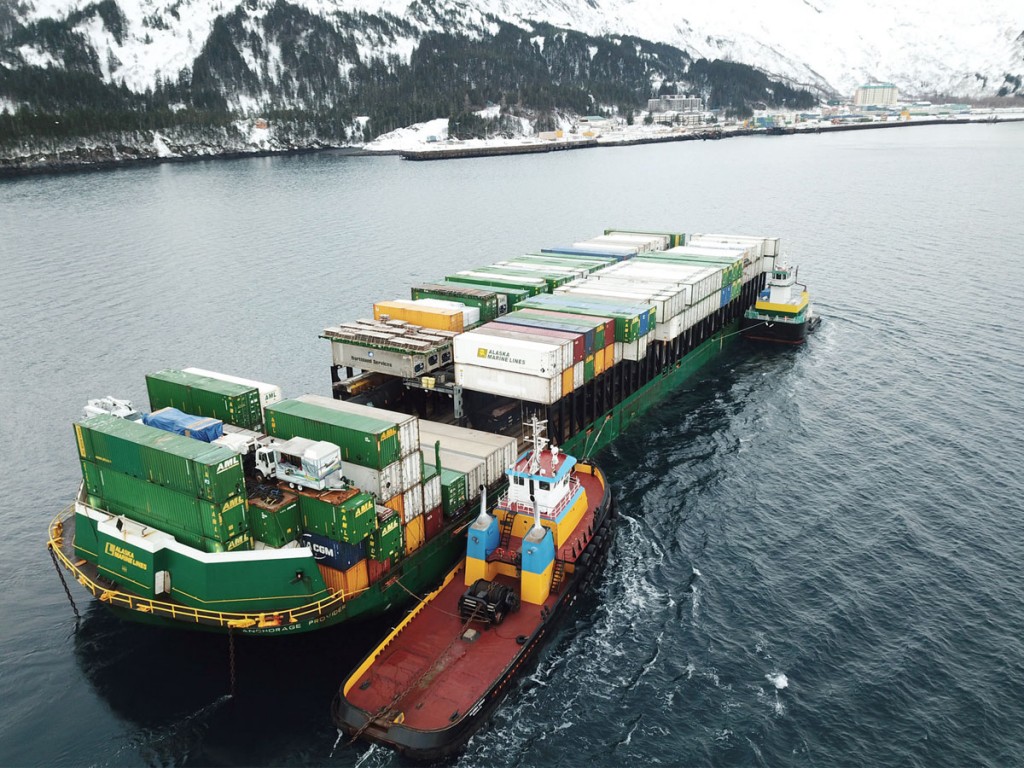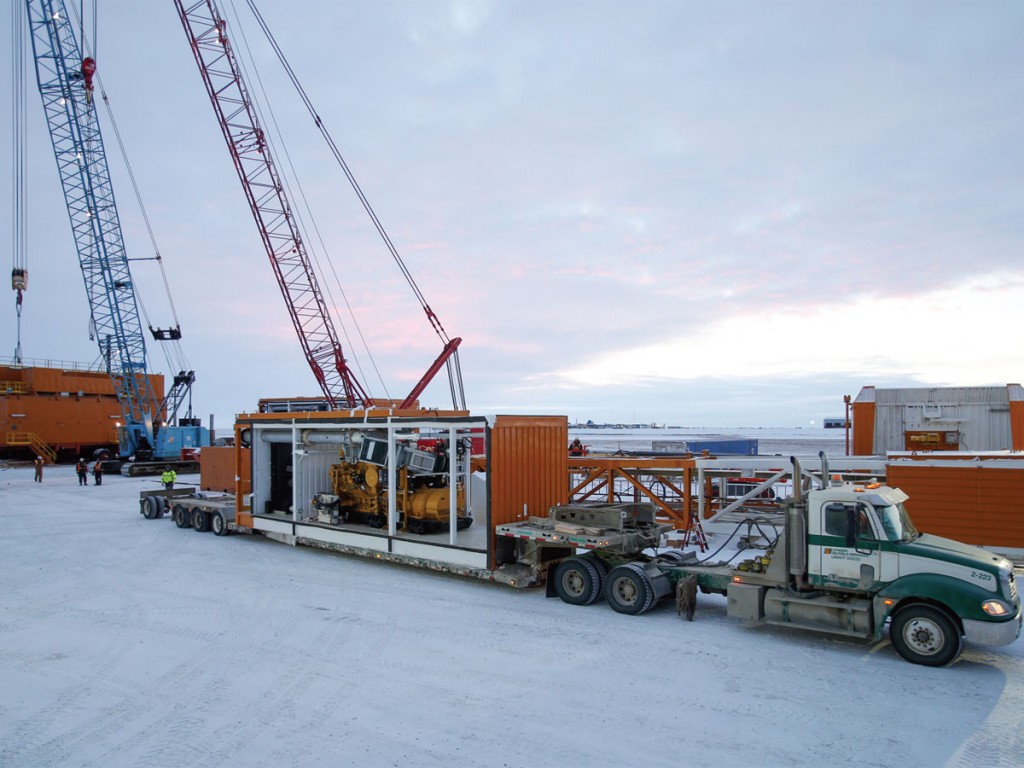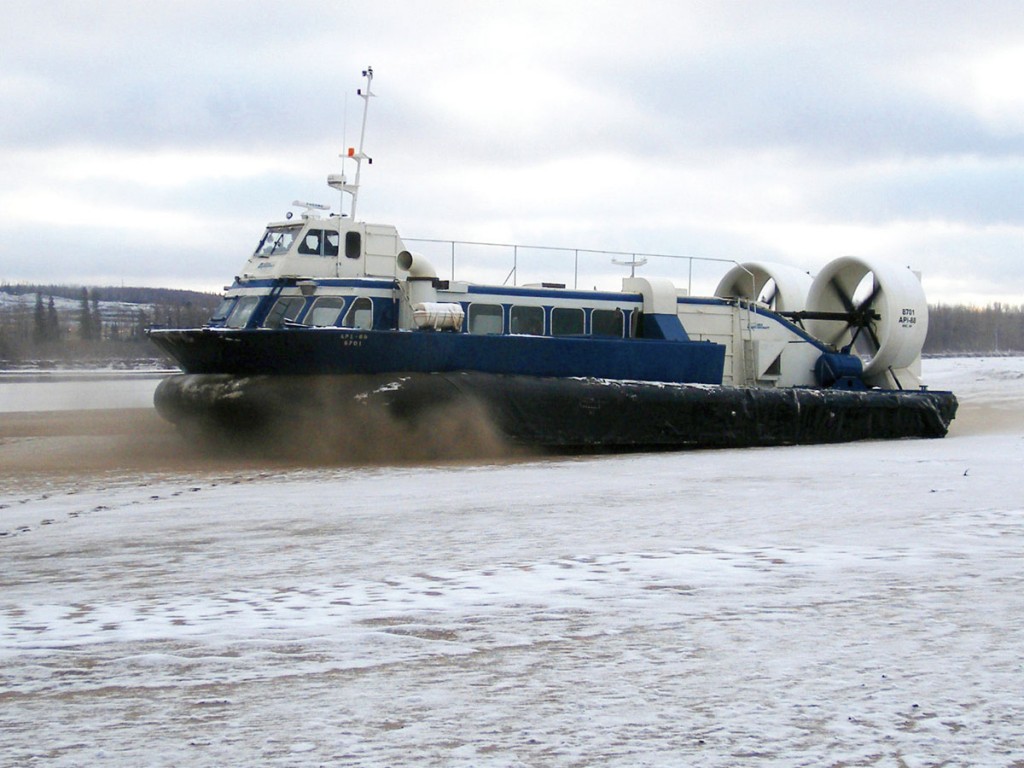Alaska - a tough place to operate even in the best of times. And with COVID-19 these aren’t the best of times. But Lynden, Inc. is keeping the supply chain running in Alaska.
When the coronavirus struck and economies began to shut down, those in Alaska’s far-flung towns became even more apprehensive than most. They are almost completely dependent on a difficult, often perilous and always complicated logistics for their goods. It’s one that must traverse the state’s vast wilderness, often traveling thousands of miles. People feared that if the system shut down, their lifeline would be completely cut off.
Instead, McKallor said, those in remote communities quickly realized the supply chain wasn’t broken at all and was operating normally. “They have a great appreciation of what we’re doing. We’ve had a lot of really positive feedback.”

Commerce continues apace in Alaska. Lynden plays a major role. The asset-heavy, multi-modal transportation and logistics company may well be the largest player in the state; it certainly covers more ground than any other.
Its business marks one of the most unusual and noteworthy operations of any major logistics concern in the US. Lynden posted revenues last year of just over $1 billion, according to WHO. Lynden ranks among the Top 50 for-hire companies. While it’s based in Seattle, Lynden has been serving Alaska since 1954, when it became the first truck operator to traverse the Alcan Highway.
Between 50% and 60% of Lynden’s total business is Alaska-centric, and several of its 15 subsidiaries are dedicated entirely to Alaska-related logistics. “We’re the carrier of last resort,” McKallor said. “So we’ll bring in everything and anything a community would need, from a chair for your living room to in some cases the fuel that goes into vehicles to the cement that would make a building.”
Lynden covers long-haul as well as providing the last mile service for UPS and others. It hauls full loads and LTL. Its project cargo business recently moved from Canada to the North Slope some 300 loads that comprised North America’s largest ever drilling rig. Its stock-and-trade equipment includes in addition to a fleet of trucks, barges, Hercules cargo aircraft, and hovercraft, PistenBully Snowcats that are like a large sled towed by a track vehicle over ice roads.
“In the transportation world, it’s pretty rare to have a company like Lynden that operates air, land and sea modes, but even rarer still to handle all shipment types from small package, LTL, bulk and heavy, oversize freight,” said McKallor, in an interview with American Journal of Transportation.
Alaskan Economy Under Siege
Of course, Alaska has been as devastated by the global meltdown as the rest of us. Its economy is in free fall, one that’s exacerbated because the state is so dependent on oil for revenue and jobs. With oil prices below production costs, development projects have stopped cold. New drilling has ceased. Rigs are being parked. People whose livelihood directly and indirectly is tied to oil are suffering.

The rest of the economy hasn’t fared better. Construction has stopped. Tourism has vanished. The cruise business is nonexistent. Most small business are shuttered.
Lynden has been hard-hit by all this as well. While McKallor wouldn’t say how much his company’s business is down, he said it mimicked Alaskan business, which overall is down some 20%, with pockets that have fallen as much as 40%.
“Demand is just way off,” McKallor said. “I’m looking at my numbers back about four or five weeks and it’s jaw-dropping.”
One bright spot may be the fish trade. However, that is predicated on containing the spread of COVID-19, so fishing and processing can continue. So far, measures to contain the virus have been successful. “It’s not like you can postpone the salmon season until October,” McKallor said.
Challenges of Geography
Lynden is vital to Alaskan commerce. Over the years, the company has developed unique capabilities and expertise to serve the entire state. “A lot of people depend on us and we take that responsibility seriously,” McKallor said.
Alaska poses unique challenges for logistics providers. Population is sparse and thinly spread over endless distances. Access is arduous. “Alaska very much lacks infrastructure that people take for granted,” McKallor said. “Our culture has been to figure it out. Okay. If the road ends, how do we use [our specialized equipment] how do we get there? “That’s driven the evolution of Lynden and how we look at logistics.”

To begin with, the state’s road network is scanty at best. It’s just not possible to get to many destinations by truck. “Just a sliver of the state actually has roads,” said McKallor.
Sea transportation isn’t much better. There are maybe five deepwater ports for the entire state, which has a coastline of 6,640 miles, half of which ices in the winter, more than rest of the US combined. And air transport must cope with small, often gravel runways and, of course, treacherous flying conditions.
The weather is a huge obstacle. Winter is bitterly cold, with minus 40F-50F commonplace. At that temperature, equipment can seize. Metal can shatter.
Terrain is vast, rugged and hazardous. Not only are there towering mountains, but boundless stretches of tundra, which aren’t stable or solid enough for roads. Hovercraft, for example, may be the only way to traverse shallow rivers in the summer and icy expanses during the winter. Water must be laid down in the winter to construct ice roads.

Finally, fulfillment centers, now a lynchpin of modern-day commerce, hardly exists at all in Alaska. “The geography is such that there’s not a natural place for those to be able to feed the rest of the state,” McKallor said. Instead, stores and others order directly from vendors, which ship largely from the Lower 48 through Lynden and others.
Inventory in Motion
All this means a different kind of supply chain that exists most other places. It’s really an inventory in motion, as opposed to just-in-time. Grocery stores, for example, must try to figure out what they need five days in advance as opposed to inventory management that flags low inventory and processes orders overnight.
This puts enormous route planning and delivery pressure on Lynden. Technology— both for the company and customer-facing — has helped improve service for customers over time. “We definitely have become much more efficient,” McKallor said. “It used to be, service was less frequent, less reliable. And that has greatly improved.”
Lynden also is active in the Hawaii trade, running barges between Seattle and Honolulu, as well as inter-island. Hawaii’s economy is also suffering greatly, especially as tourism has dried up and cruises stopped dead in the water. Lynden’s Hawaii business, however, is more oriented to construction than to the retail trade. No matter. Construction in Hawaii has dried up, although that may prove a more temporary setback for Lynden than what it’s experiencing in Alaska.





